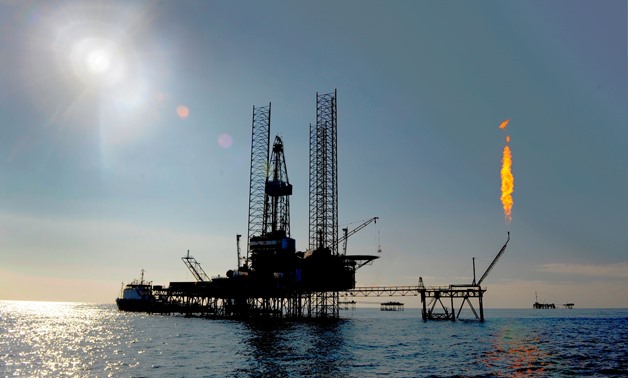
Drilling rig – File photo/ Wikimedia Commons
CAIRO – 22 July 2017: Egypt plans to explore oil in Red Sea for the first time in history, following the maritime demarcation agreement signed between Egypt and Saudi Arabia, with expectations of huge findings in the new area, according to Minister of Petroleum Tarek El Molla’s statement on Thursday.
The Petroleum Ministry, represented by South Valley Egyptian Petroleum Holding Company (Ganope), signed with American corporation for drilling technologies Schlumberger and British company TGS to provide the government with geo-science data for exploring and producing oil and gas, with $750 million contracts to start collecting the geo-science data in Egyptian waters on Thursday.
“The agreement allowed Egypt to start its exploring activities in this area of the Red Sea, since it determined Egypt’s limits in exploring oil,” El Molla said in official statement released Thursday, adding that there are two similar anticipated maritime demarcation agreements with Greece and Cyprus.
The U.S. Geological Survey (USGS) estimated a mean volume of 5 billion barrels of undiscovered technically recoverable oil and 112 trillion cubic feet of recoverable gas in the Red Sea Basin Province using a geology-based assessment methodology, according to their official website.
“The survey will be limited between 22° and 28° in Red Sea, to cover 55 km²,” the minister added, affirming that both foreign companies offered good deals to scan the area, which will enable Egypt to start drilling the area searching for oil very soon.
Gas and oil explorations usually exist in the Mediterranean Sea, Nile Delta, Eastern Desert, Suez Bay, and east of the Western Desert, according to the minister, making the Red Sea a virgin area for exploration.
Ganope started to receive biddings of international companies to explore oil and gas in the Red Sea within the upcoming 5 years.
Comments
Leave a Comment